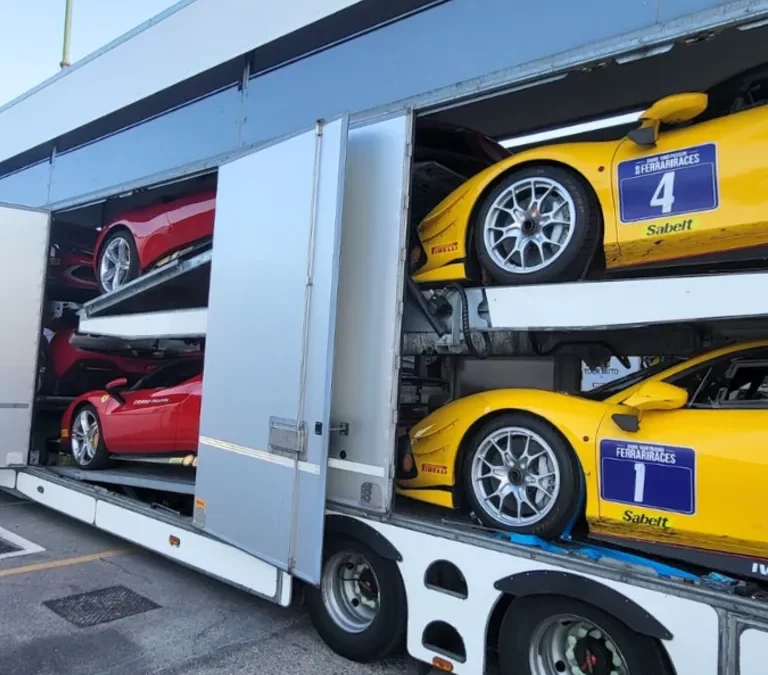For more than 35 years, CEVA Logistics’ Finished Vehicle Logistics services provides tailor-made solutions for the secured and confidential transport of exceptional vehicles, including prototypes, concept cars, supercars, classic cars, race cars, and more. Every year CEVA handles more than 10,000 high-value vehicles across more than 27 countries with the utmost care, utilizing our fleet of closed and open trucks to ensure secure and flexible transport options. Our expertise lies in managing time-sensitive and appointment-based deliveries for clients across Europe, as well as in the UK and Morocco, while providing tailored solutions to meet local requirements and specific business needs.
To learn more about this specialized service we’ve sat down with Raphael Bouzeloc, CEVA’s FVL Special Transport Manager. With 10 years of experience in Finished Vehicle Logistics, Raphael shares insights into how CEVA meets the unique demands of this field.
What are the main challenges faced in transporting special vehicles?
Each day, we transport exceptional vehicles that hold not only financial value but also deep historical, and often emotional value. For this reason, they require optimal, safe, and secure handling, transport, and storage conditions to preserve their integrity. For prototype testing, the pre-production phase, and new model launches, maintaining full confidentiality during transport is crucial.
As the market becomes increasingly demanding and fast-paced, adhering to strict deadlines is non-negotiable. Whether it’s for auto events, testing, or homologation trials for new models, ensuring reliable and responsive deliveries is vital. In the research and development field, for instance, reducing development cycles is a major challenge for some of our clients. In this area, being a proactive transport partner is key to allowing them to focus on their core projects by taking care of the logistical elements.
In this quickly evolving landscape, traceability also plays a crucial role. Providing visibility at every step throughout the transport process brings peace of mind to customers. Finally, adopting more efficient transport practices to minimize carbon footprint and reduce environmental impact remains a key priority. We’re always aiming for efficiency—less miles, faster transit, and reduced carbon emissions.

